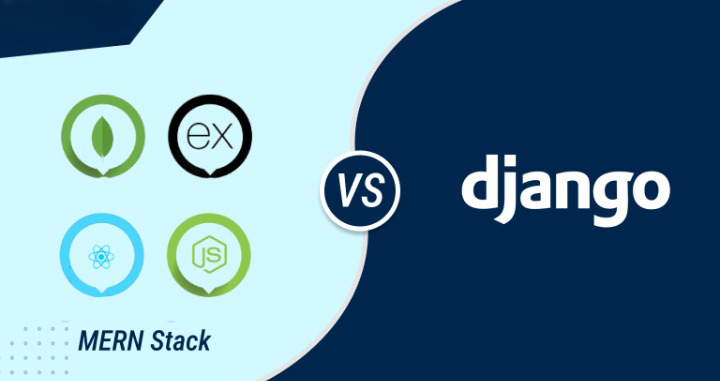What Is MERN Stack? How It Is Impacting Web Development Services?
- pankajsharmaaji1
- May 27, 2024
- 3 min read
Introduction
The MERN (MongoDB, Express.js, React.js, Node.js) stack has emerged as a powerful and popular choice for web development, revolutionizing the way modern web applications are built. By integrating JavaScript across the entire development stack, MERN offers unparalleled efficiency, productivity, and scalability. This stack empowers developers to create feature-rich applications with a consistent development experience, from database management to user interface design. Therefore, joining the Best MERN Stack Course can be a wise career move for aspiring professionals. Its rapid prototyping capabilities, coupled with its ability to handle high volumes of concurrent requests, make it an ideal solution for businesses seeking to deliver dynamic and performant web experiences.

What Is MERN Stack?
The MERN stack is a popular software development stack used for building full-stack web applications. It comprises four key technologies: MongoDB, Express.js, React.js, and Node.js, each serving a specific purpose within the stack.
MongoDB: MongoDB is a NoSQL database that stores data in flexible, JSON-like documents. It's known for its scalability and flexibility, making it suitable for handling large volumes of data and accommodating evolving schemas.
Express.js: Express.js is a minimalist web application framework for Node.js. It provides a robust set of features for building web and mobile applications, including routing, middleware support, and template engines.
React.js: React.js is a JavaScript library for building user interfaces. Developed by Facebook, React.js allows developers to create reusable UI components that efficiently update and render based on data changes. It's known for its declarative syntax and virtual DOM, which enhance performance and maintainability.
Node.js: Node.js is a server-side JavaScript runtime environment built on Chrome's V8 JavaScript engine. It enables developers to run JavaScript code on the server, allowing for non-blocking, event-driven architecture that supports real-time applications.
Together, these technologies form a powerful stack for developing modern, scalable web applications, with MongoDB handling data storage, Express.js managing server-side logic, React.js handling client-side interfaces, and Node.js serving as the runtime environment. The MERN stack's flexibility, performance, and robust ecosystem make it a popular choice for web developers.
Impact Of MERN Stack In Web Development Services
The MERN (MongoDB, Express.js, React.js, Node.js) stack has had a profound impact on the landscape of web development services, fundamentally altering the way modern web applications are conceived, developed, and deployed. This stack, characterized by its reliance on JavaScript across both client and server-side components, brings a host of advantages that have reshaped the industry.
Enhanced Efficiency And Productivity
One of the most significant impacts of the MERN stack is its ability to enhance efficiency and productivity in web development services. By utilizing a unified language and ecosystem throughout the development process, MERN enables developers to streamline workflows, minimize context switching, and accelerate project timelines. With JavaScript as the lingua franca, developers can seamlessly transition between frontend and backend tasks, resulting in faster development cycles and greater overall efficiency.
Rapid Prototyping And Iteration
Moreover, the MERN stack promotes rapid prototyping and iteration, facilitating agile development methodologies. React.js, with its component-based architecture and hot reloading capabilities, empowers developers to quickly iterate on design concepts and incorporate user feedback in real-time. Combined with MongoDB's flexible schema and Express.js's minimalist framework for building web applications and APIs, the MERN stack provides developers with the tools they need to iterate rapidly and respond dynamically to changing project requirements.
Scalability And Performance
Scalability and performance are also significantly impacted by the MERN stack. Node.js, with its event-driven, non-blocking I/O model, is inherently designed for building highly scalable and performant applications. This makes it well-suited for handling large volumes of concurrent requests and serving dynamic content to users with minimal latency. MongoDB, a NoSQL database known for its horizontal scalability, complements Node.js by enabling seamless scaling of data storage across distributed server environments. Together, these components empower web development services to build applications that can handle exponential growth in user traffic and data volume while maintaining optimal performance and responsiveness.
Full-Stack Expertise
Furthermore, the MERN stack fosters the development of full-stack expertise among Mern Stack Developer, enabling them to work across the entire web development stack with proficiency. This holistic approach to development not only enhances developers' skill sets but also enables them to take ownership of projects from end to end, resulting in more cohesive and integrated solutions. Additionally, the demand for full-stack developers proficient in the MERN stack continues to rise, as businesses seek versatile professionals capable of delivering comprehensive web development services.
Conclusion
In conclusion, the MERN stack offers a powerful and versatile framework for building modern web applications, enabling developers to create scalable, performant, and engaging user experiences. Its streamlined development process, scalability, performance benefits, and rich ecosystem make it a compelling choice for businesses and developers alike, driving innovation and growth in the web development industry.



Comments